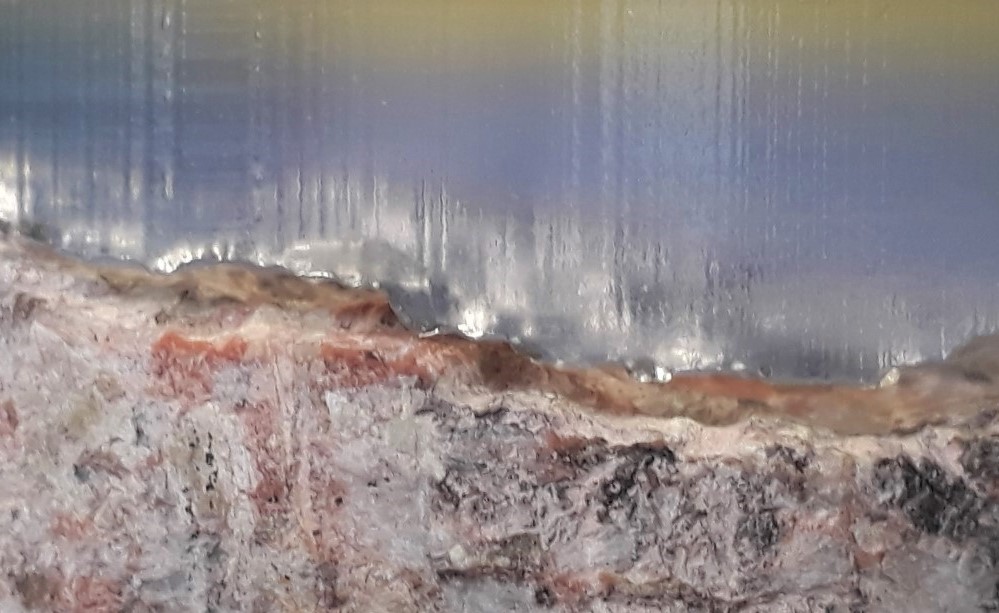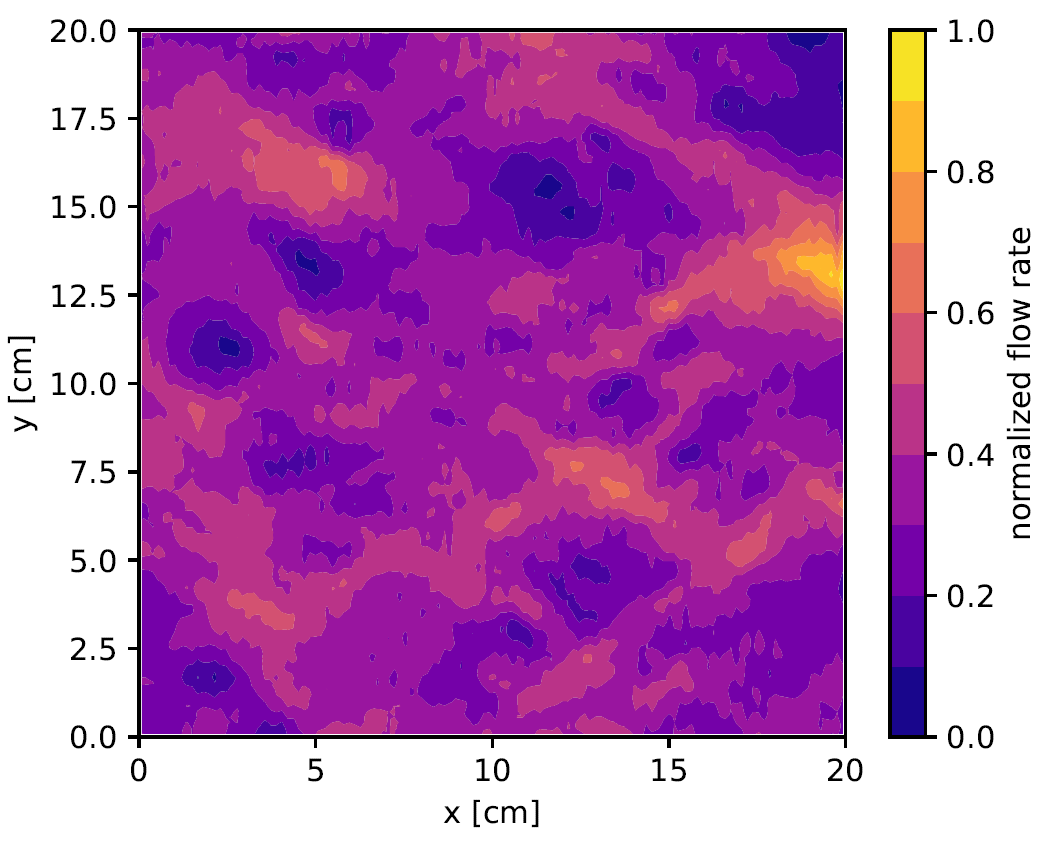Fluid dynamics and hydraulics in rough rock fractures
Supervisors: Dr. Fabian Nitschke, Prof. Dr. Thomas Kohl
Person in charge: Carola Buness
The flow behavior of geothermal waters through fractured rock affects, among other things, the pressure gradient and heat transfer along a fracture, which are two essential criteria in geothermal reservoirs. However, simplified models are usually adopted in reservoir modeling, which often do not consider in detail the rough rock surfaces that produce fractures of different, complex geometries depending on shear and roughness.
This Ph.D. study deals with the experimental and numerical investigation of the flow and transport behavior of geothermal waters in complex fractures. The experiments are performed in the DFG-funded F4aT hydraulics laboratory, where the influence of individual parameters on hydraulics and fluid transport is studied. The most important parameters include: The variation of roughness, which can be described among others by the Hurst exponent; the flow rate of the water, which can lead to laminar or non-laminar flow behavior in the same fracture; and the opening of the fracture, which can affect the influences of small roughness’s. The combination of these parameters can be decisive for the hydraulics in the rock. For example, channeling effects can occur, where the main fluid transport is only through some channels rather than across the entire fracture surface. The analysis of such effects and the different parameters aims for a better understanding of the flow behavior and the applicability of the simplified models from reservoir modeling.


